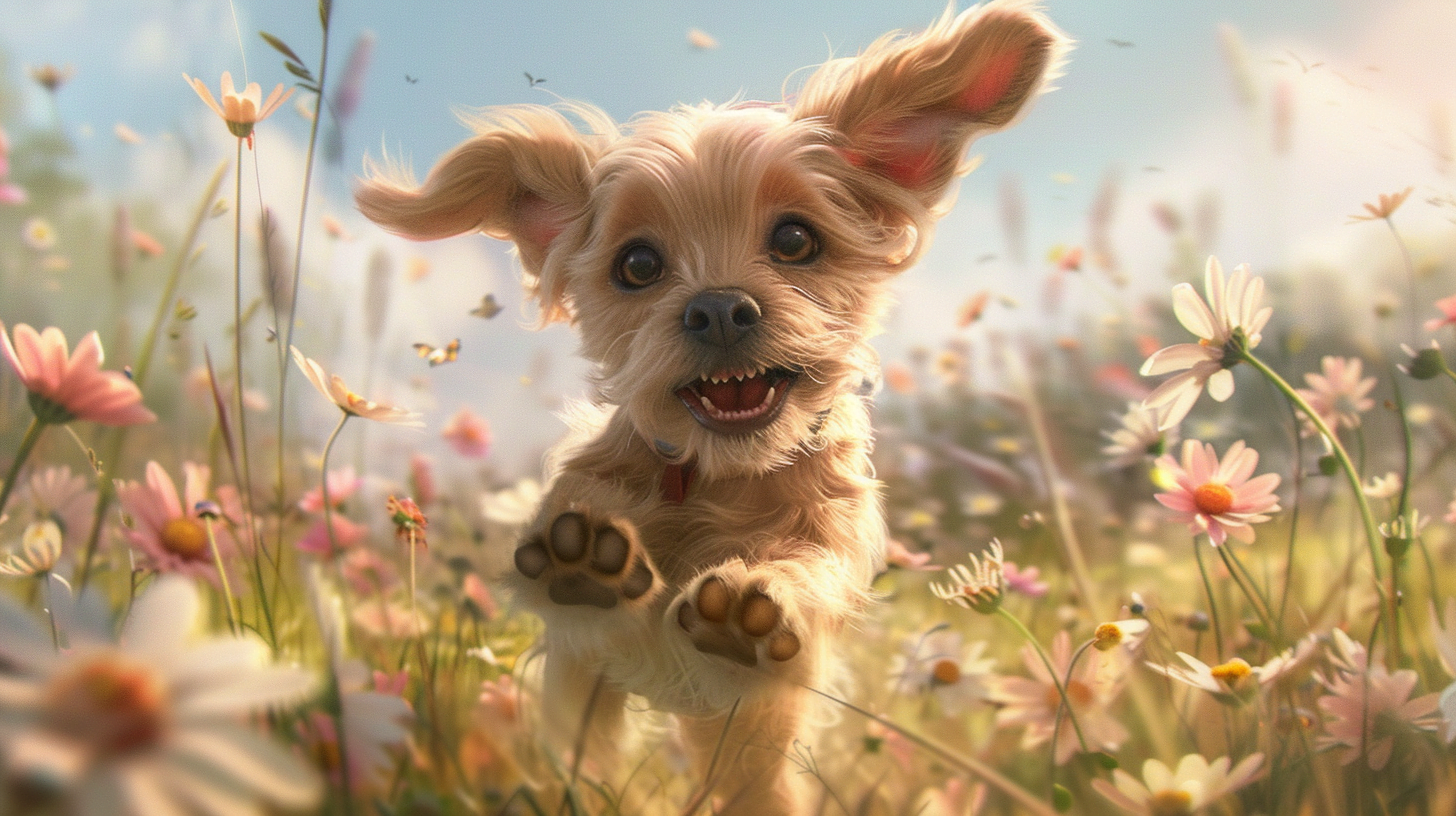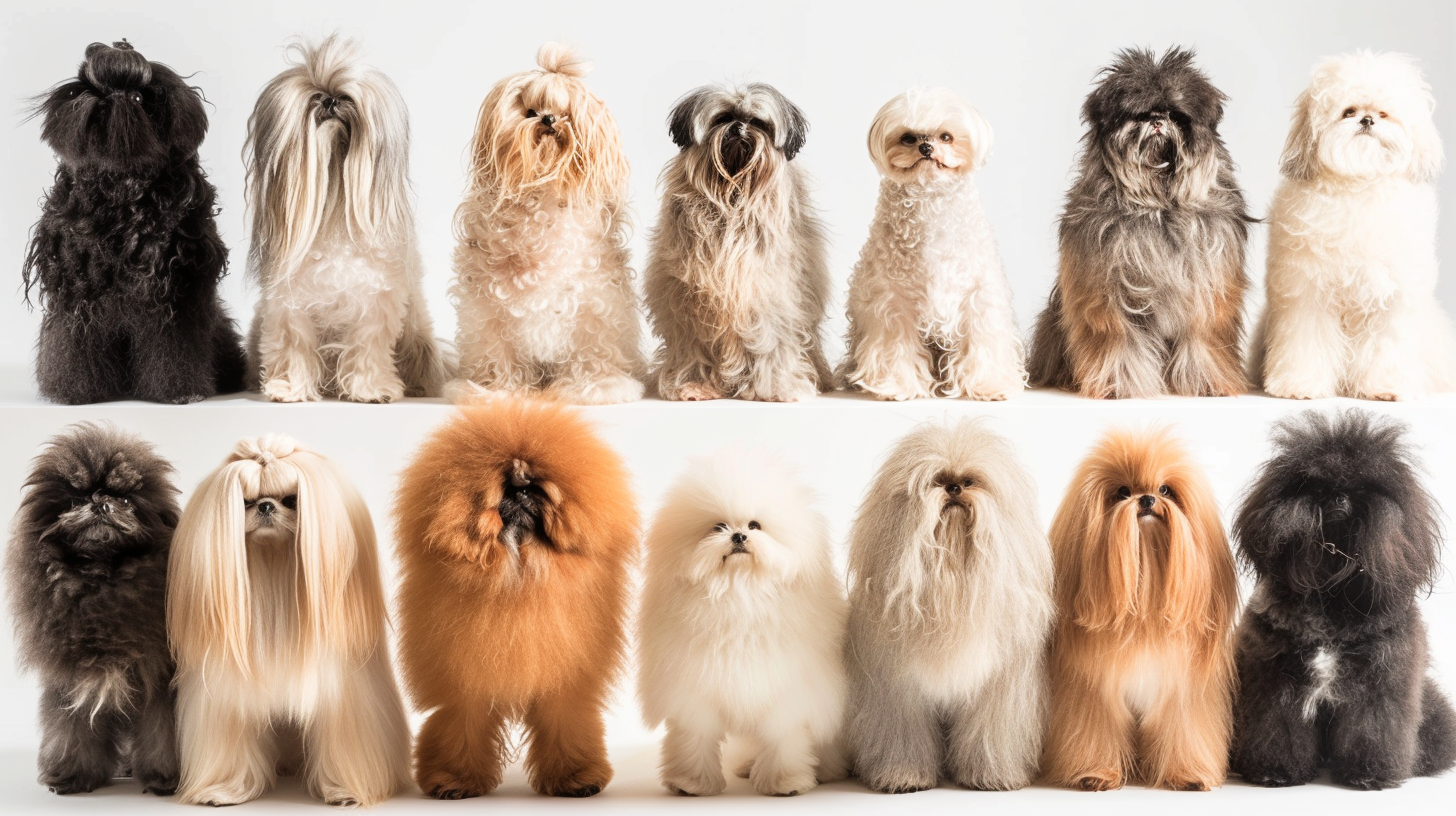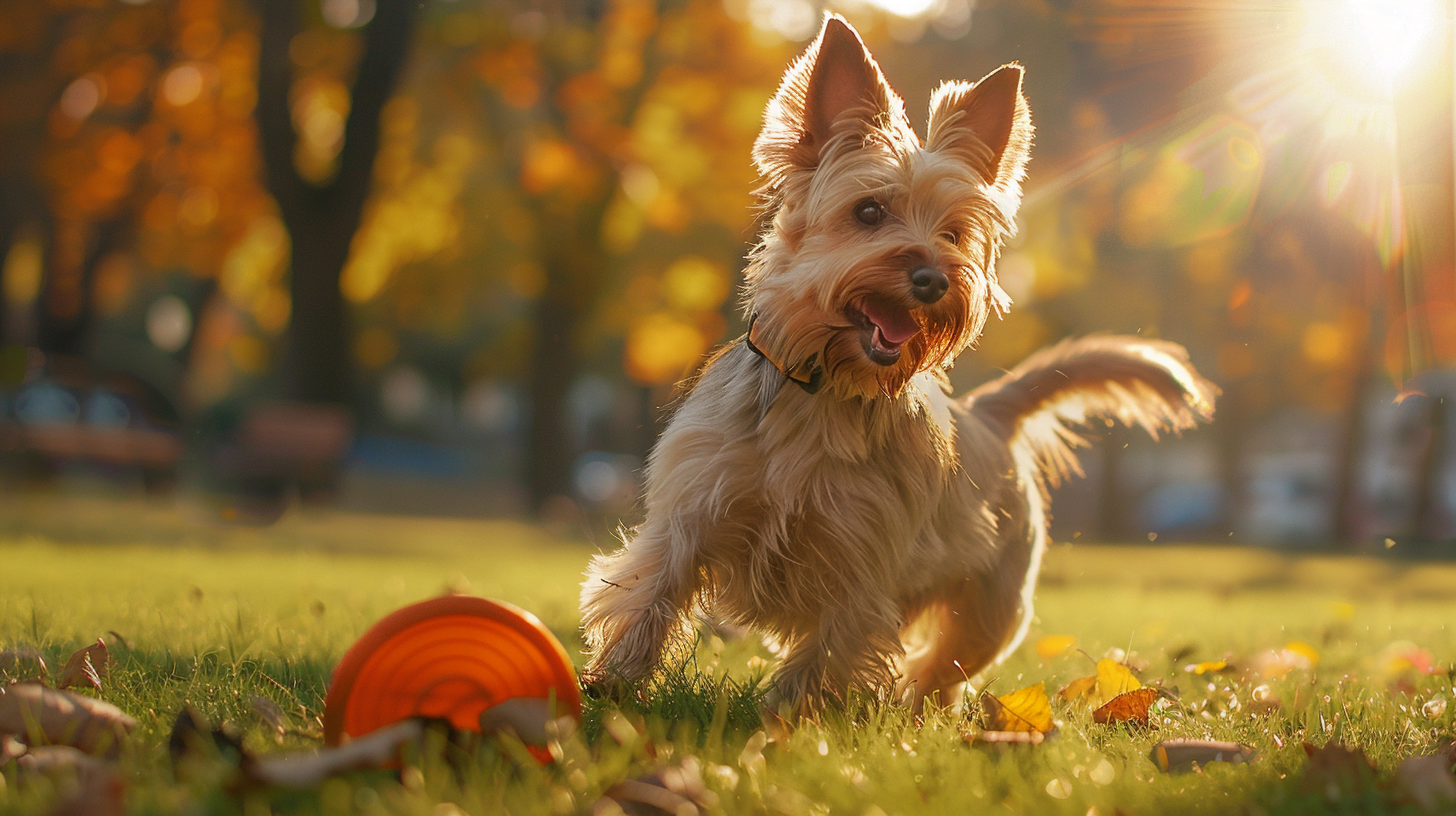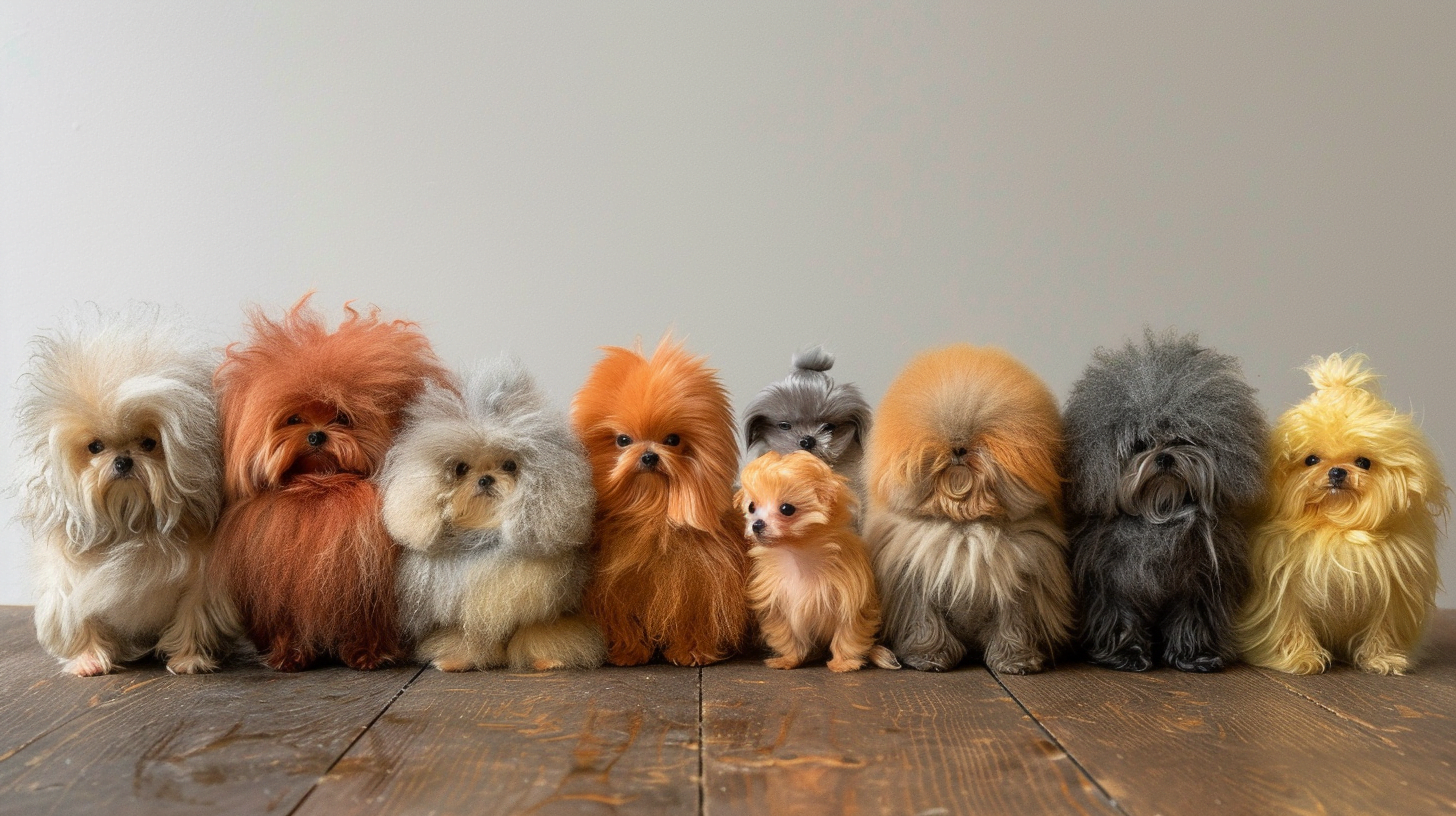Let me tell you about a dog that’s stolen the hearts of dog lovers everywhere – the Poogle. This adorable mix between a Beagle and a Poodle is like the perfect blend of your favorite latte – a little bit sweet, a little bit spicy, and oh-so-satisfying.
Introduction
What makes the Poogle so special, you ask? Well, it’s not just their ridiculously cute looks. Poogles are known for their playful personalities, affectionate nature, and undeniable charm. They’re like the life of the party, always ready to wag their tails and make you smile.
Now, I’ve spent countless hours researching and chatting with fellow Poogle enthusiasts, and I’m here to spill all the tea on this delightful breed. Whether you’re a proud Poogle parent or simply curious about these captivating canines, this guide is for you. We’ll delve into their history, uncover their unique traits, and equip you with everything you need to know to give your Poogle the best life possible.
As a certified dog trainer and lifelong dog lover, I’m passionate about sharing my knowledge and helping you build a strong bond with your furry friend. So, grab a cup of coffee, get comfy, and let’s embark on this Poogle-tastic journey together!

The Poogle’s Unique Appeal
Sure, Poogles are undeniably adorable – those puppy dog eyes, floppy ears, and wagging tails are enough to melt anyone’s heart. But there’s so much more to these delightful dogs than their cute factor. Let’s dive into what makes the Poogle truly special.
Hybrid Vigor: The Poogle Power-Up
You might have heard of “hybrid vigor”, also known as heterosis. It’s a phenomenon where mixed-breed dogs like Poogles can inherit the best traits from both parent breeds while potentially avoiding some of the health issues that plague purebreds. Think of it as a genetic power-up! While not guaranteed in every case, Poogles often enjoy a longer lifespan and fewer genetic predispositions to certain diseases than their purebred counterparts. So, not only are they cute, but they might also be healthier!
Personality Plus: A Poogle for Every Person
Poogles are known for their playful and affectionate nature, but their personalities can vary depending on which parent breed they take after more. Some Poogles might inherit the Beagle’s independent spirit and love of adventure, while others might channel the Poodle’s intelligence and eagerness to please.
Imagine a Poogle who’s always up for a game of fetch, then curls up on your lap for a cuddle session. Or a Poogle who’s a master escape artist, always finding new ways to explore the backyard. No two Poogles are exactly alike, which is part of their charm.

To give you a better idea of the Poogle personality spectrum, here’s a quick comparison table:
| Trait | Beagle Influence | Poodle Influence |
| Energy Level | High: Needs plenty of exercise and mental stimulation | Moderate to high: Enjoys playtime and training |
| Trainability | Moderate: Can be stubborn but eager to please | High: Intelligent and eager to learn |
| Loyalty | High: Devoted to family | High: Forms strong bonds with their humans |
| Independence | High: Enjoys exploring and following their nose | Moderate: Thrives on companionship and attention |
| Vocalization | High: Prone to howling and barking | Moderate: May bark when excited or alert |
As you can see, Poogles offer a delightful mix of traits, making them adaptable companions for various lifestyles. Whether you’re an active adventurer or a couch potato, there’s a Poogle out there who’s the perfect match for you.
Poogle Appearance: A Visual Feast for the Eyes
If you’re a fan of adorable dog breeds, the Poogle is sure to steal your heart. They’re like walking teddy bears, with a mix of features that can vary depending on which parent breed they take after more. Let’s break down their appearance:
Size: From Petite to Pint-Sized
Poogles come in a range of sizes, primarily determined by the type of Poodle parent they have. You’ll find:
- Standard Poogle: If a Standard Poodle is one of the parents, your Poogle might reach 15-24 inches in height and weigh 40-70 pounds.
- Miniature Poogle: With a Miniature Poodle parent, your Poogle will likely be 10-15 inches tall and weigh 15-40 pounds.
- Toy Poogle: The smallest of the bunch, Toy Poogles have a Toy Poodle parent and usually stand under 10 inches tall, weighing less than 15 pounds.
No matter their size, Poogles have a sturdy build and a well-proportioned body, inheriting the Beagle’s athleticism and the Poodle’s elegance.
Coat: A Kaleidoscope of Colors and Textures
One of the most captivating aspects of the Poogle is their coat. It’s like a surprise gift – you never know exactly what you’re going to get! Here’s a glimpse of the possibilities:
- Texture: Poogle coats can be curly, wavy, or straight, depending on their Poodle parent’s genes. Some Poogles even have a wiry coat, adding to their unique charm.
- Colors: Poogles come in a rainbow of colors, thanks to their diverse parentage. You might find them in classic shades like black, brown, and white, or more eye-catching hues like apricot, red, or sable. Some Poogles even have a multi-colored coat with spots, patches, or a unique pattern called “parti.”
- Shedding: While Poodles are known for their low-shedding coats, Poogles can inherit varying degrees of shedding from their Beagle parent. If you’re looking for a hypoallergenic option, it’s essential to ask the breeder about the Poogle’s specific lineage and coat type.
Whether they’re sporting a poodle-like ‘do or rocking a more casual Beagle look, Poogles are always dressed to impress. Their coats are soft and inviting, begging for cuddles and belly rubs.
Facial Features: Expressive Eyes and Endearing Ears
Poogles have expressive eyes that can melt your heart with a single glance. Their eyes are typically round and can be brown, hazel, or even blue in rare cases. Their ears, often inherited from their Beagle parent, are long and floppy, adding to their endearing appearance.
Nurturing Your Poogle: A Comprehensive Care Guide

Caring for a Poogle is a joyful experience, but it’s essential to understand their unique needs to ensure they live a long, healthy, and fulfilling life. Think of it as a love language, tailored specifically for your furry friend. Let’s dive into the details of Poogle care:
Exercise: Unleashing the Poogle Powerhouse
Poogles are energetic bundles of joy who need plenty of exercise to keep them happy and healthy. A tired Poogle is a good Poogle, as the saying goes! Here’s what you need to know:
- Daily Dose: Aim for at least 30-60 minutes of exercise daily, depending on your Poogle’s age and energy level. This can be split into two or three sessions throughout the day.
- Variety is Key: Poogles get bored easily, so mix up their exercise routine. Walks, runs, hikes, playing fetch, and dog park visits are all great options.
- Mental Stimulation: Don’t forget to challenge their minds! Puzzle toys, scent games, and obedience training can help keep your Poogle mentally sharp and prevent boredom-related behaviors.
Grooming: Pampering Your Poogle Princess (or Prince)
Poogle grooming needs can vary depending on their coat type. Here’s a general guide:
- Curly or wavy coats: Brush 2-3 times a week to prevent mats and tangles.
- Straight coats: Brush once a week to remove loose hair and dirt.
- Bathing: Bathe your Poogle every 4-6 weeks or as needed, using a gentle dog shampoo.
- Ear Cleaning: Check and clean your Poogle’s ears weekly to prevent infections.
- Nail Trimming: Trim your Poogle’s nails every 3-4 weeks or as needed.
- Professional Grooming: Consider taking your Poogle to a professional groomer every 6-8 weeks for a trim and thorough grooming session.
- Pro Tip: Get your Poogle used to grooming from a young age to make it a positive experience.
Nutrition: Fueling Your Poogle’s Adventures
A healthy and nutrition diet is important for your Poogle’s overall health. Here are some tips:
- High-Quality Food: Choose a high-quality dog food that’s appropriate for your Poogle’s age, size, and activity level. Look for brands that use real meat as the first ingredient and avoid fillers and artificial additives.
- Portion Control: Follow the feeding guidelines on the dog food package, but adjust the amount based on your Poogle’s individual needs.
- Treats: Use treats sparingly for training and rewards, and factor them into your Poogle’s daily calorie intake.
- Fresh Water: Always provide fresh, clean water for your Poogle.
Training: Unleashing Your Poogle’s Potential
Poogles are intelligent dogs, eager to please their owners. However, they can also inherit some of the Beagle’s stubbornness. Positive reinforcement training methods, such as rewarding good behavior with treats and praise, work best with Poogles. Consistency, patience, and a sense of humor are key to successful training.
Health: Keeping Your Poogle in Tip-Top Shape
Poogles are generally healthy dogs, but like all breeds, they’re prone to certain health issues. Some common concerns include:
- Hip Dysplasia: A genetic condition affecting the hip joints.
- Ear Infections: Due to their floppy ears, Poogles are prone to ear infections.
- Allergies: Poogles may develop allergies to food, environmental factors, or fleas.
- Hypothyroidism: An underactive thyroid gland.
- Epilepsy: A neurological disorder causing seizures.
Regular vet checkups, preventive care, and early detection of health problems can help ensure your Poogle lives a long and healthy life.
Poogle Ownership: Responsibilities and Rewards

Owning a Poogle is like embarking on an adventure filled with laughter, love, and a whole lot of wagging tails. But like any worthwhile journey, it comes with responsibilities as well as rewards. Let’s explore what it takes to be a Poogle parent:
Finding Your Poogle: Where Love Meets Responsibility
The first step in your Poogle journey is finding the perfect furry companion. You have two main options:
- Adoption: Rescuing a Poogle from a shelter or rescue organization is a rewarding experience. You’ll not only give a loving home to a deserving dog, but you’ll also be supporting a great cause.
- Responsible Breeder: If you decide to go through a breeder, choose one who prioritizes the health and well-being of their dogs. Look for breeders who conduct health screenings on their breeding dogs, provide a clean and comfortable environment for the puppies, and are transparent about their breeding practices.
No matter which path you choose, be prepared to ask plenty of questions, meet the Poogle’s parents, and ensure you’re ready to provide a loving and supportive home for your new furry friend.
Preparing for Your Poogle: Setting the Stage for Success
Before bringing your Poogle home, it’s crucial to create a safe and welcoming environment. Here’s a checklist to get you started:
- Essential Supplies: Stock up on Poogle necessities like a comfortable bed, food and water bowls, a sturdy leash and collar, ID tags, high-quality dog food, treats, and engaging toys.
- Poogle-Proofing: Make sure your home is safe for your curious Poogle. Secure any potential hazards like electrical cords, toxic plants, and small objects they could swallow. Create a designated space for your Poogle to rest and relax.
- Training Plan: Research and choose a positive reinforcement training method that aligns with your Poogle’s personality and learning style. Start with basic commands like “sit,” “stay,” and “come,” and gradually introduce more complex training as your Poogle progresses.
Poogle as a Family Member
Poogles thrive on human companionship and love being part of a family. They’re generally great with children, but it’s essential to teach kids how to interact with dogs respectfully and supervise their interactions.
If you have other pets, introduce them to your Poogle slowly and under supervision. Poogles usually get along well with other dogs and cats, especially if they’ve been socialized from a young age.
Addressing Poogle Quirks
While Poogles are generally well-behaved, they can develop certain behavioral issues if their needs aren’t met. Here are some common challenges and how to address them:
- Separation Anxiety: Poogles can become anxious when left alone for long periods. Counter this by gradually increasing their alone time, providing plenty of toys and chews, and creating a comforting environment.
- Barking: Poogles can be vocal, especially if they’re bored or lack exercise. Ensure they get enough physical and mental stimulation, and consider training them to bark on command and to be quiet on cue.
- Digging: Beagles are notorious diggers, and some Poogles might inherit this trait. Provide a designated digging area in your yard, redirect their digging behavior with toys and games, and ensure they’re getting enough exercise to expend their energy.
By understanding your Poogle’s unique needs and addressing potential behavioral issues proactively, you’ll create a harmonious and fulfilling life for both you and your furry companion.
Conclusion

As we reach the end of our Poogle adventure, I hope you’ve gained a deeper appreciation for these incredible dogs. They’re not just cute faces; they’re loyal companions, playful partners, and furry family members who bring endless joy and love into our lives.
From their mixed heritage to their unique personalities, Poogles are a breed like no other. They’re the perfect blend of Beagle and Poodle, offering a delightful combination of intelligence, affection, and playful energy. Whether you’re an active adventurer or a homebody seeking a cuddly companion, a Poogle could be the perfect addition to your family.
But remember, owning a Poogle is a commitment. It requires time, patience, and a whole lot of love. By providing proper care, training, and socialization, you’ll be rewarded with a loyal and devoted companion who will bring years of happiness to your life.
If you’re considering adding a Poogle to your family, I encourage you to do your research, find a reputable breeder or rescue organization, and prepare your home for your new furry friend. And if you’re already a proud Poogle parent, I hope this guide has provided valuable insights and resources to help you navigate the joys and challenges of Poogle ownership.
Now, I’d love to hear from you! Share your Poogle stories, ask any questions you may have, and connect with other Poogle enthusiasts in the comments below. Let’s celebrate the Poogle together!
FAQs
Are Poogles Good Family Dogs?
Yes, Poogles generally make excellent family dogs. They are known for their playful and affectionate nature, getting along well with children and other pets when properly socialized. Their intelligence and eagerness to please make them relatively easy to train, which is beneficial for families. However, it’s important to supervise interactions between young children and any dog, as Poogles can be energetic and might accidentally knock over small children during playtime.
What are the grooming needs of a Poogle, and how do they vary depending on coat type?
Poogle grooming needs depend on the coat they inherit.
- Curly or Wavy Coats: Require regular brushing (2-3 times a week) to prevent matting and tangles. They may also need professional grooming every 4-6 weeks to keep their coat trimmed and tidy.
- Straight Coats: Require less frequent brushing (once a week) but still benefit from regular grooming to maintain a healthy coat and skin.
- Regardless of coat type, all Poogles need their ears checked and cleaned weekly to prevent infections, as their floppy ears can trap moisture. Nail trims every 3-4 weeks and occasional baths are also necessary.
How can I find a reputable Poogle breeder, and what questions should I ask them?
Finding a reputable Poogle breeder requires research and careful consideration. Start by asking for recommendations from friends, family, or your veterinarian. Look for breeders who are members of the Poodle Club of America or the American Kennel Club and who participate in health testing programs for their breeding dogs. Ask the breeder about their breeding practices, the health history of the parents, and how they socialize their puppies. A good breeder will be happy to answer your questions and provide references.

I could talk about dog breeds all day! My goal is to help you find the four-legged friend who fits your life like a perfectly worn-in tennis ball fits in a dog’s mouth.

